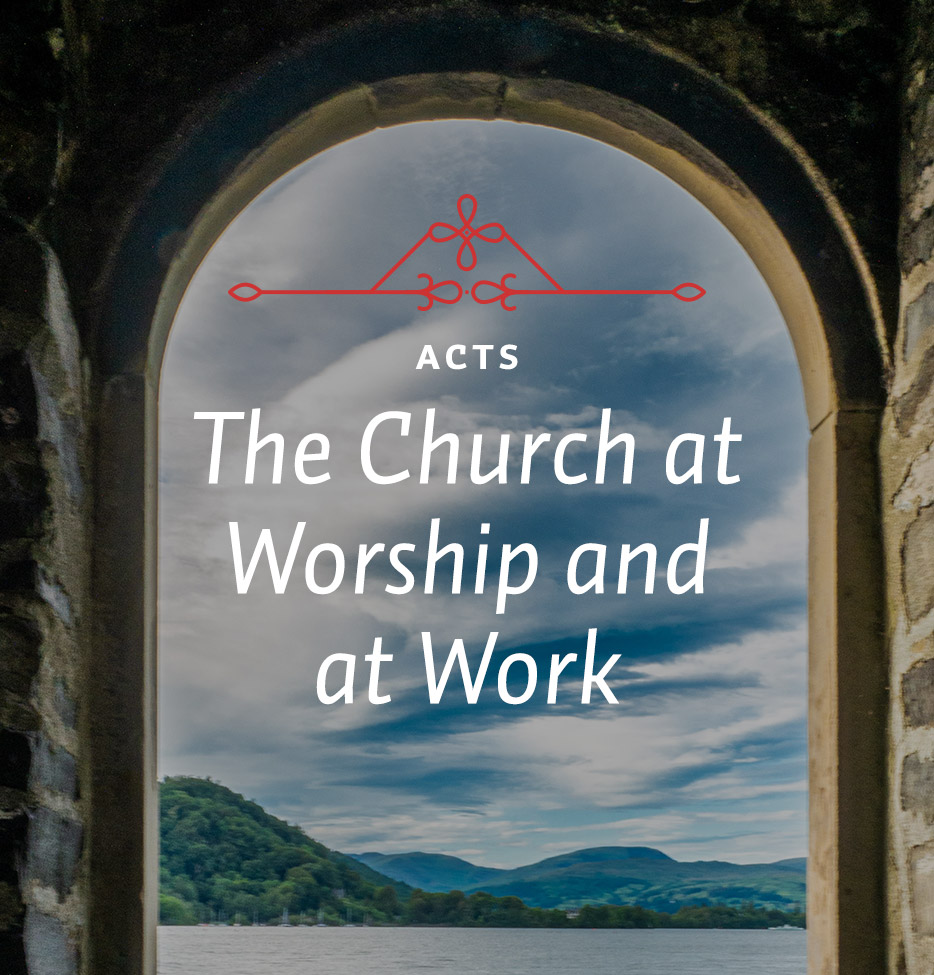We saw in the first chapter of Acts that when the disciples needed to choose a replacement for Judas, they did so on the basis of what is said in Psalms 69 and 109. When Peter preached at Pentecost he based his sermon on three great texts from the Old Testament: Joel 2:28-32, which prophesied the outpouring of the Holy Spirit in the latter days; Psalm 16:8-11, which prophesied the resurrection of Jesus Christ; and Psalm 110:1, in which God the Father says to God the Son, “Sit at my right hand until I make your enemies a footstool for your feet.” Even in chapter 4, when Peter appeared before the Sanhedrin, he quoted from Psalm 118:22: “The stone you builders rejected… has become the capstone.”
Can you see what is happening? The minds of these early Christians were being scripturally transformed, because, although in a certain sense, being devout Jews, they already knew the Scriptures, before this they had not understood them. They had read the Old Testament. They had heard it in the synagogues. I am sure they had even memorized important passages. But they did not really understand them. It was only after Jesus died and had risen again and the Holy Spirit had come, that their eyes were opened and they saw the Old Testament in its true light.
Whenever I think about this, I think how the Lord opened the minds of the disciples on the first Easter day. The story is told in Luke 24. It speaks of three great openings.
1. Jesus opened the Scriptures. When Jesus met two disciples on their way home to Emmaus and found that they did not understand what had happened in Jerusalem over the weekend, He “opened the Scriptures” to them (v. 32). This opening is important in itself, because Jesus could have said, “Look, it’s me, Jesus. Look at my wounded hands and side. Don’t you understand?” But He did not point to His body. Instead He pointed these two disciples to the Scriptures and opened them. That is, He taught what the Bible said about the resurrection.
2. Jesus opened their eyes. While they were sitting with Him and He broke bread in their home, “Their eyes were opened and they recognized him” (v. 31). They had not recognized Him earlier; their eyes had been blinded. But now their eyes were opened. First the Scriptures, then their eyes.
3. Jesus opened their minds. Finally, later on in the chapter, after the disciples had gone back to Jerusalem and were assembled with the others in the Upper Room, Jesus appeared in their midst, and it says, “Then he opened their minds so they could understand the Scriptures” (v. 45). First He opened the Scriptures; second He opened their eyes; third He opened their minds. From that point on, they never understood the Old Testament in the same way again. Or to put it in more correct language, for the first time in their lives they really understood the Old Testament. When they turned to Genesis, they found Jesus there. When they turned to Exodus, they found Jesus there. When they turned to the Psalms, Jesus was in the Psalms.
Because of this entirely new way of understanding the Bible, here in Acts 4, when the early Christians wanted to speak about Jesus in their prayer to God, the words of the Bible just naturally came tumbling out. Does that happen when you pray to God? Do you express your delight in Him in the words of Scripture? It is natural to do it, if you know the Bible. If you don’t, well, that is a great deficiency in your life and should be corrected.






